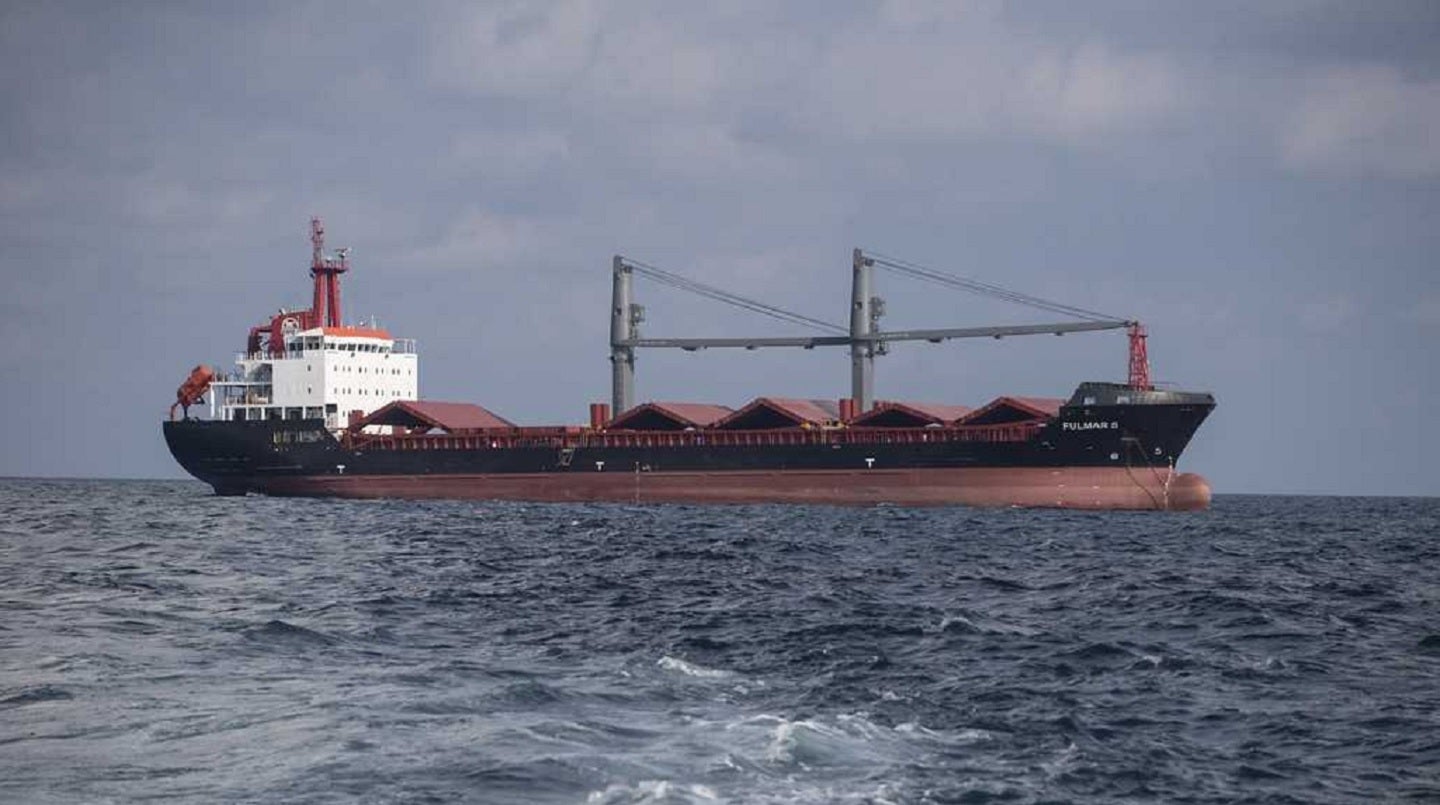
Inspections of commercial shipping transiting to and from Ukrainian ports in the Black Sea are at their lowest since the initiation of the Black Sea Grain Initiative (BSGI) in August 2022, aimed at unlocking millions of tonnes of much-needed foodstuffs grown in Ukraine to global markets.
According to an 8 May update from the Office of the UN Coordinator for the BSGI, 2.9 vessels are being inspected on average every day in May, comprising an average of 1.4 inbound and 1.5 outbound commercial vessels. At its peak in October 2022, the BSGI was inspecting 10.7 vessels each day, with 4.4 being inbound and 6.3 outbound.
The Office of the UN Coordinator said that the inspections rate had “significantly dropped”, with around 26 vessels currently in Turkish waters loaded with 1.15 million metric tonnes of grain and foodstuffs.
According to information shared by the Ukrainian delegation at the BSGI Joint Coordination Centre (JCC), there were 62 vessels waiting to move to Ukrainian ports. No inspections were carried out between 7 and 8 May.
Average of completed inspections per day
| Inspection month | Inbound inspections | Outbound inspections | Total |
| August 2022 | 2.5 | 1.6 | 4.1 |
| September 2022 | 6.2 | 4.2 | 10.4 |
| October 2022 | 4.4 | 6.3 | 10.7 |
| November 2022 | 3.6 | 3.7 | 7.3 |
| December 2022 | 3.1 | 3.4 | 6.5 |
| January 2023 | 2.8 | 2.7 | 5.5 |
| February 2023 | 2.5 | 2.8 | 5.3 |
| March 2023 | 2.9 | 2.7 | 5.6 |
| April 2023 | 1.8 | 2.2 | 4 |
| May 2023 (to date) | 1.4 | 1.5 | 2.9 |
In terms of exports of Ukrainian foodstuffs, as of 8 May the BSGI had facilitated the movement of nearly 29.8 million metric tonnes, including 595,169 metric tonnes of grain shipped by vessels chartered by the World Food Programme (WFP) in support of its humanitarian operations in Afghanistan, Ethiopia, Kenya, Somalia, and Yemen.
In 2022, Ukraine supplied more than half of WFP’s global wheat grain procurement, as was the case in 2021.
There are currently 14 vessels in the Ukrainian ports loading approximately 600,000 metric tonnes of grain and foodstuffs. The Initiative also provides for the exports of fertiliser, including ammonia, although the JCC said that there had been no exports of such items so far.
Exports by month
| Departure date | Metric tonnes | Change |
| August 2022 | 1,573,290 | |
| September 2022 | 3,913,484 | 149% |
| October 2022 | 4,241,809 | 8% |
| November 2022 | 2,611,506 | -38% |
| December 2022 | 3,740,616 | 43% |
| January 2023 | 3,023,926 | -19% |
| February 2023 | 3,393,366 | 12% |
| March 2023 | 3,933,607 | 16% |
| April 2023 | 2,785,455 | -29% |
| May 2023 | 581,218 | |
| Grand total | 29,798,277 |
Despite the successes of the mission in transporting millions of tonnes of vital foodstuffs into the global market, the obvious conflict between the Ukrainian and Russian sides has caused previous issues. In October 2022, Russia’s decision to indefinitely suspend its participation in the process caused significant backlogs of vessels seeking permissions to undertake unbound and outbound transits.
On 13 March 2023, Russia extended its participation in the BSGI for a further 60 days.
Black Sea Grain Initiative
The JCC comprises the UN, Russia, Ukraine, and Nato member state Turkey. As part of the JCC, Turkey will inspect, inside its territorial waters, shipping coming to and from Ukrainian ports to ensure there are no breaches of the agreement such as the transport of arms and other materiel.
The BSGI was jointly created by the UN, Turkey, Russia, and Ukraine, to enable the export of vital grains and fertilisers from Ukraine, which had been suspended following the 24 February 2022 invasion of the country by Moscow.
The Ukrainian Black Sea ports of Odesa, Chornomorsk, and Pivdennyi are the main hubs for grain exports and have been blockaded by the Russian Navy’s Black Sea Fleet since the invasion began last year. Prior to the war, Ukraine was one of the world’s largest exporters of grains and global food prices skyrocketed as Russia stopped all merchant traffic from travelling to Ukrainian ports.
According to the UK Government, in 2021 Ukraine provided 30.9% of Egypt’s grain and wheat consumption, 7.7% of Yemen’s, 7% of Bangladesh’s, and 11.7% of Morocco’s. Previously, 96% of Ukrainian grain was exported through the Black Sea.



